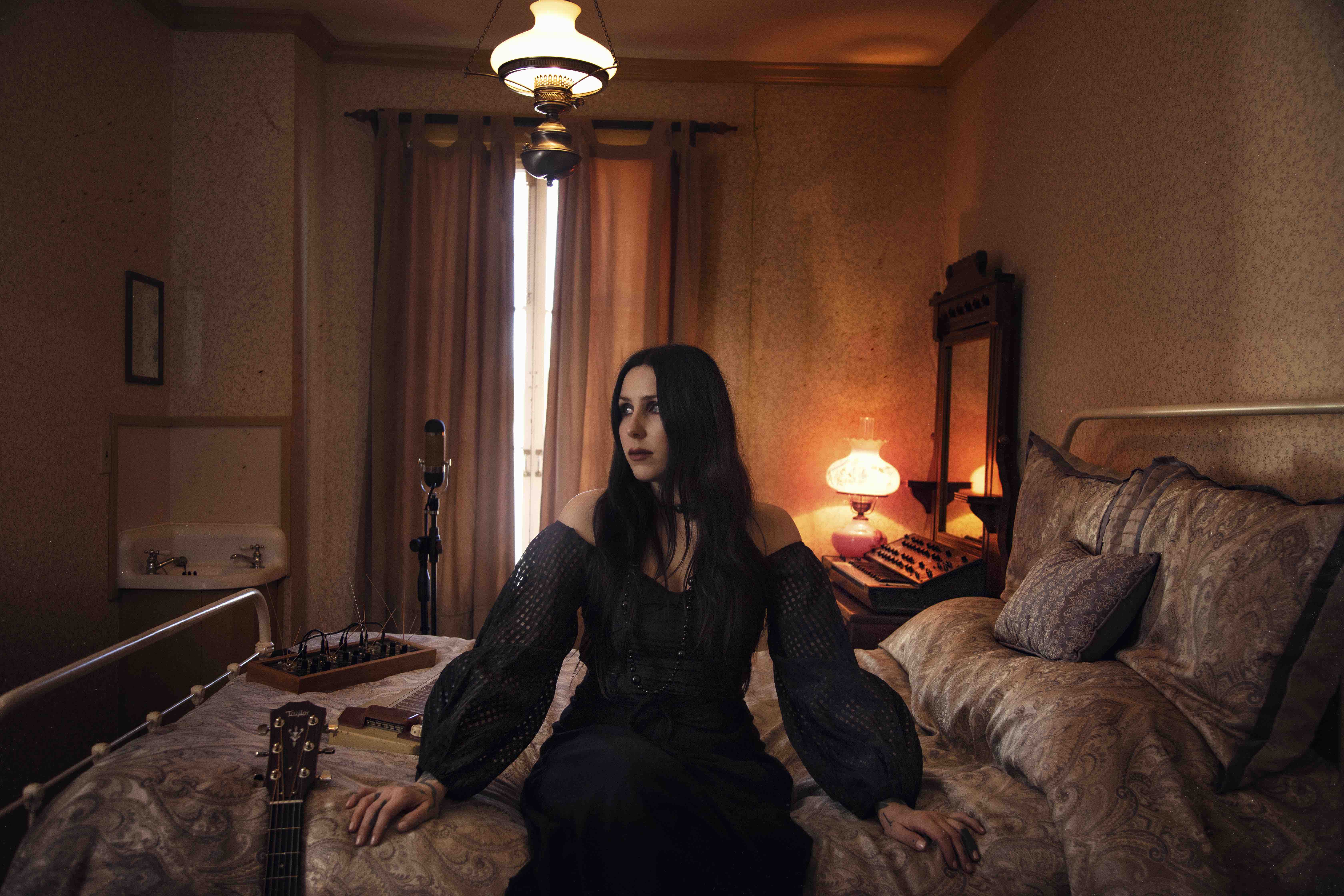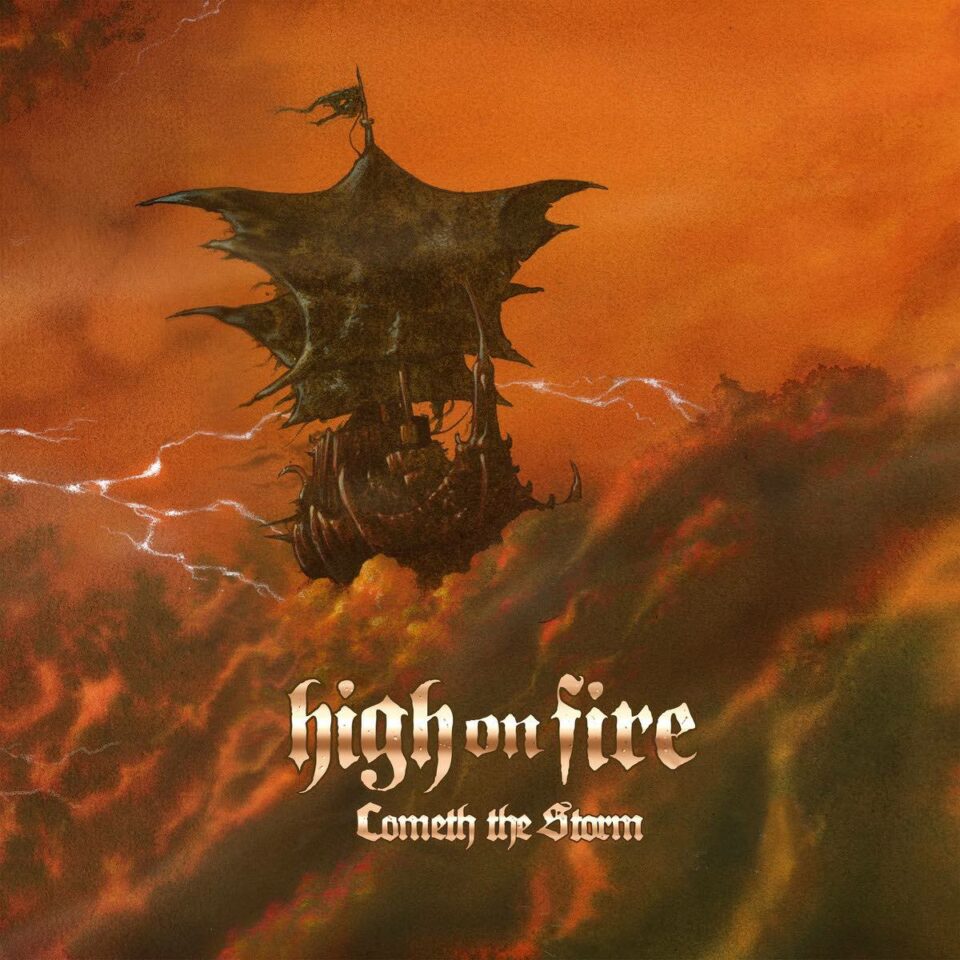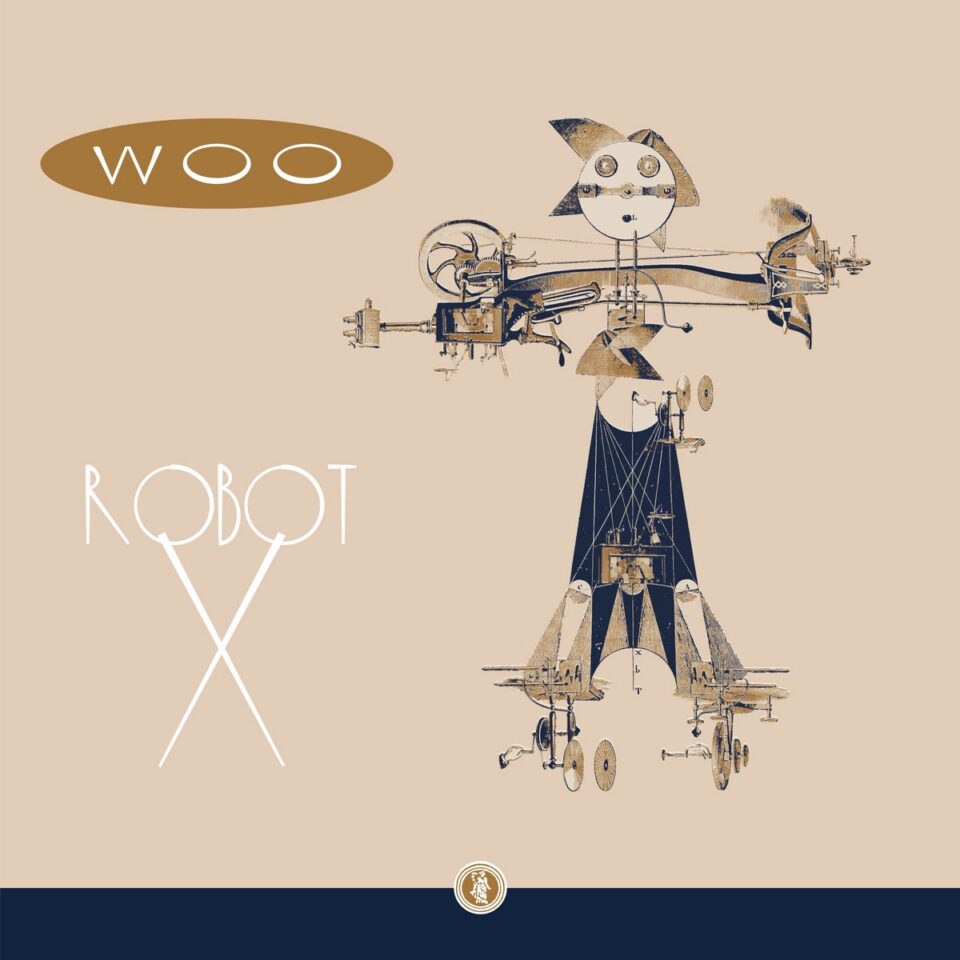“Sometimes, just the thought of being on stage is more stressful than actually doing it,” singer-songwriter Chelsea Wolfe tells me. “Once I’m in the groove of a tour, it becomes a really fun thing. It’s like an experiment every night to see how it’s going to go, how the energy of the room is going to be.”
It’s half past noon in early August, and Wolfe has just finished her morning workout. “I don’t get up super early, so I’m still in morning zone right now—very musician of me,” she laughs.
The thirty-five-year-old Sacramento native is relaxed as she speaks from her home in the mountains of Northern California, where she’s preparing for a cross-country trek in support of her sixth studio effort, Birth of Violence. “I really tried my best, on this tour, to find old theaters, or places that had character, since it’s an acoustic set,” she says. “With a full band, we could play in any old bar, but as much as I could, I tried to find an interesting setting, or a place with really good acoustics.”
One venue which definitely strikes the right note is Colorado’s Stanley Hotel, famous for serving as the exterior of the nefarious Overlook in Stanley Kubrick’s The Shining. While the singer-songwriter’s latest work doesn’t exactly conjure visions of corridors brimming with blood, it’s a gorgeous, shadowy recording replete with stark songcraft that’s sure to sparkle in the sinister setting.
Written over the course of a year and a half, the songs which became Birth of Violence were composed on the road, while Wolfe was in the midst of a perpetual tour schedule. Lyrics were jotted into notebooks, or her laptop, and she plotted the initial melodies on an acoustic guitar in the back of the bus. The final versions were recorded at Wolfe’s home studio, in collaboration with longtime bandmate Ben Chisholm, whose deft touch with elements as diverse as synthesizers, bass guitar, and field recordings played a crucial role in rendering the atmosphere which defines the album’s forlorn framework.
Unquestionably, each of the twelve tracks is informed by a sense of dread at watching her country quiver in the grip of a poisonous patriarchy—but the embrace of power is also a potent presence. “I’ve been writing more on this album from the perspective of being a woman, and navigating this world as a woman,” Wolfe explains. “Even the album cover has a Joan of Arc, witchcraft feel. Standing up, owning your power, and speaking up for yourself is a big theme.” Confrontation, and its ability to promote understanding, is at the heart of “When Anger Turns to Honey,” which begins with a sonic treatment evoking a banshee’s despondent wail before Wolfe’s soothing vocals arrive. This song, she says, addresses that anger comes from pain, “and that pain connects us, because all of us have pain in our lives.”
Overall, it’s the sting of existence, the expression of the kind of pain that reminds you you’re alive, that melds the tracks on Violence into a singular tapestry. It’s a cinematic experience as much as an aural one, and rewards both passive listening and deeper digging. The title track opens with oscillating percussion invoking the sound of a lonely railcar, and it’s a fragmented narrative of harvests, baptisms, overdoses, and forgiveness. As it progresses, restrained choral keys, along with the gentle strum of Wolfe’s guitar, bolster the build toward a soaring climax which puts her ethereal vocals in the spotlight. Equally haunting and alluring, it feels like a tintype portrait of contemporary America.
“I’ve been writing more on this album from the perspective of being a woman, and navigating this world as a woman. Even the album cover has a Joan of Arc, witchcraft feel. Standing up, owning your power, and speaking up for yourself is a big theme.”
During the writing process, the phrase “birth of violence” was among the first things which came to Wolfe, and her fascination with it led to it becoming the title. “I worked at a used bookstore in high school, and loved browsing through old books with titles like Grapes of Wrath or Wuthering Heights, and I wanted this album to have a title that felt like it could be on some historical book,” she recalls, before turning to reflect on the term “violence.” “I love words, and ‘violence,’ to me, is such a beautiful word for such an ugly thing. When I looked it up in my old dictionary, one of the definitions was ‘strength of emotion,’ so I kind of attributed that to a feminine thing. Women are often looked down upon for being emotional or dramatic, and I want to own that strength of emotion. Though we can be very emotional, that often leads to a lot of powerful, important things.”
With its initial dirge-like beat, twinkling aural highlights, and sultry, pleading chorus, “American Darkness” is another of the record’s stirring summits, showcasing that strength of emotion. “I was imagining a war widow in an isolated cabin, imagining the ghost of her partner who passed away in a war, and inviting his ghost to dance with her,” Wolfe explains. So in one respect, it’s a secluded ghost story, similar to the best ballads of America’s songwriting tradition, and familiar territory for the artists—think Joni Mitchell, Johnny Cash, Bonnie Raitt—who shaped her musical upbringing. But that’s only part of the story.
“I think it also has a greater meaning in the connection between a lot of people and the history of the United States,” she continues, “which is built on darkness.” It’s a darkness Wolfe feels impossible to ignore, even as she can sense rays of light gaining on the horizon. When posed a question plucked from the famous Proust Questionnaire, there’s no hesitation when she answers as to her real-life heroes. “The women of Congress,” she says immediately.
At this point, Wolfe is less certain where her musical projects will go in the future, and breezily remarks that any direction she’d discuss today will likely have evolved before she ventures back to the studio. What remains clear is that any of her upcoming shows should be special engagements to witness, whether or not the background is as eerie as the Stanley Hotel. FL









